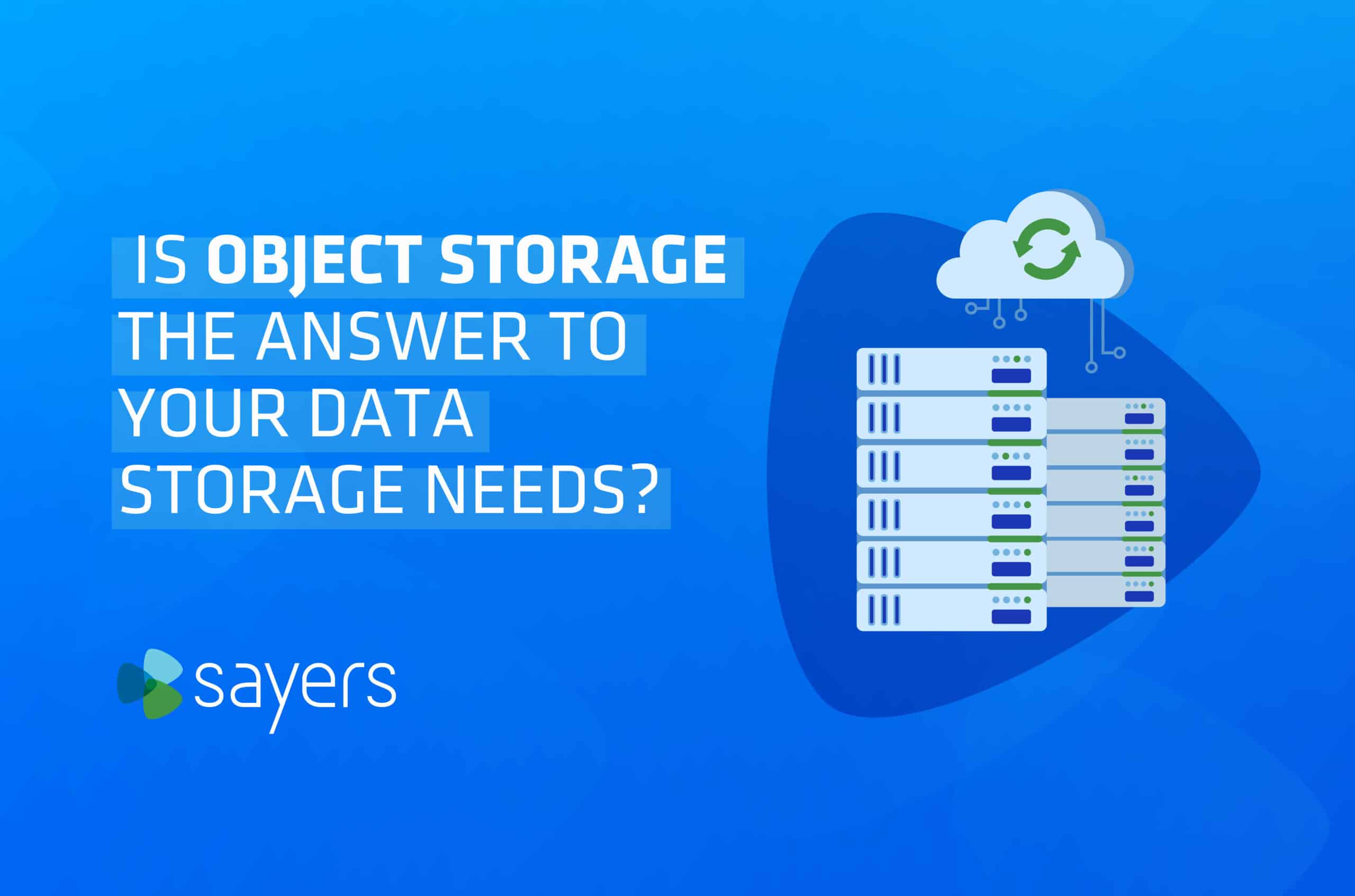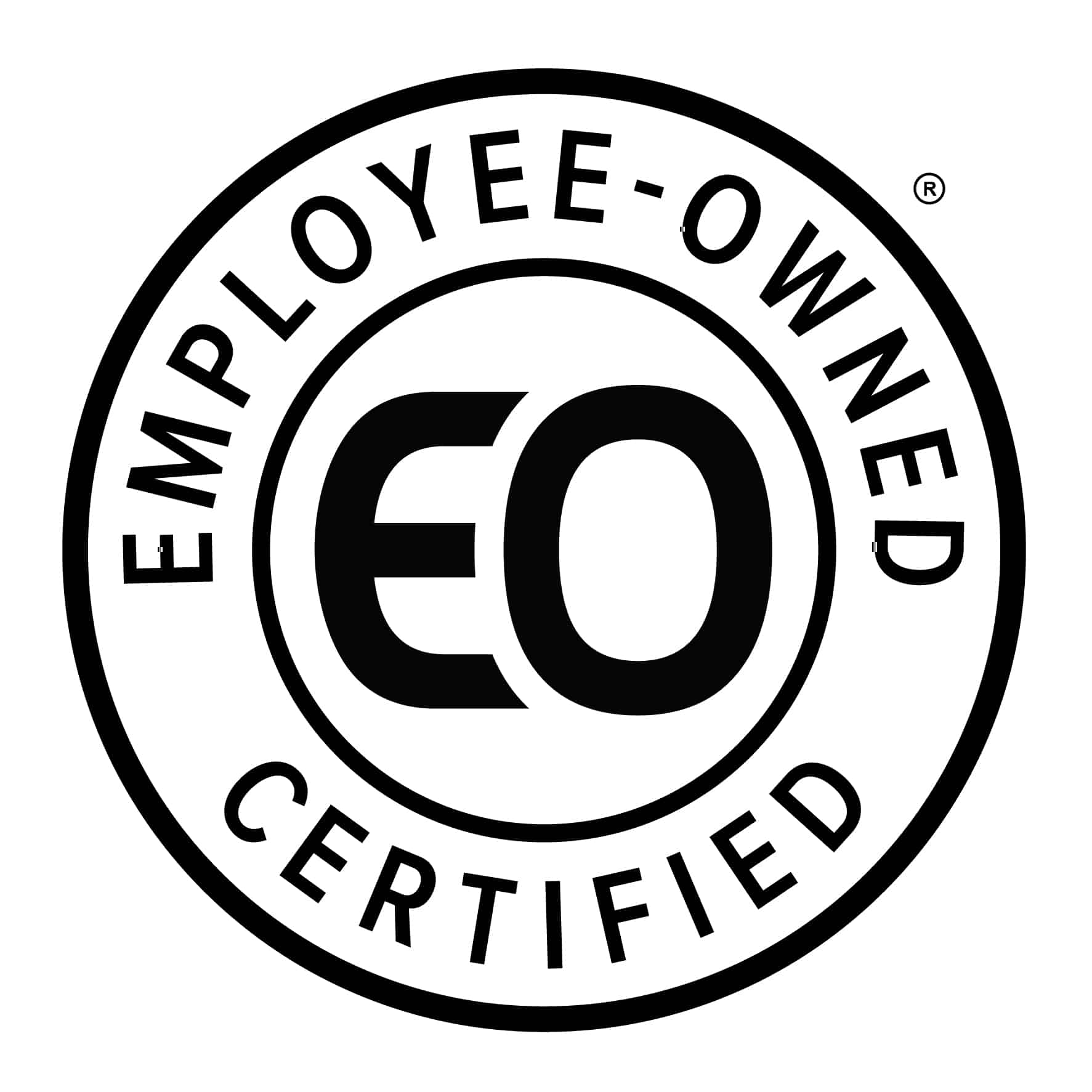IS OBJECT STORAGE THE ANSWER TO YOUR DATA STORAGE NEEDS?
Posted September 15, 2021 by Sayers

If you’ve got a lot of data (and what organization doesn’t?), you’ve got decisions to make about that data. Not the least of which is: Where and how will you store it all?
For many companies, object storage is the answer. Also known as object-based storage, object storage manages data as distinct units to be stored on-premise or in the cloud. Each unit, known as an object or bucket, includes the data, extended metadata, and unique identifier – essentially everything you need to manage and search massive amounts of unstructured data that can grow to multiple petabytes in size.
Get Ready for the Data Tsunami with Object Storage
According to IDC, the annual global data size in 2025 will be around 175 zettabytes, and 90 zettabytes of this data will be from IoT devices alone. IDC further projects:
80% of the worldwide data will be unstructured by 2025 – largely due to the large volume of new machine-driven information.
Unstructured data also includes the continuous stream of email, video, media files, and social media. Most organizations can expect to see their data growth swell in the next two years.
Where is all that data going to go?
The most effective way to apply data analytics, machine learning, and AI to those vast data stores is through object storage. When you need to search, pull, and put that information to use, object storage is arguably the quickest, most cost-efficient, and highly scalable way to do that.
Object Storage Features and Questions to Consider
Whether you need unstructured data storage for data backup and recovery, software development repositories, big data analytics, or any of many other use cases, consider which features are most important to you as you choose among all the object storage vendors out there.
What are your scalability needs for handling more data?
Consider whether you need to scale from small terabytes of data to multi-petabytes, or if you’re already starting at a high scale in the petabyte range. You’ll want to know what capacity your vendor has already tested with other customers.
How confident are you in your data protection?
Object storage uses multiple data copies and erasure coding, with data broken down into fragments and encoded for distributed storage. Object storage can verify data during non-peak hours and, if it discovers corrupted data, removes the corrupted file(s) and ensures there’s a valid copy.
Can you quickly retrieve your data?
Whether in the cloud or on-premise, object storage offers quicker data retrieval due to its capabilities for searching, indexing, and using metadata. Our customers are finding that auditing which has taken weeks in the past can now take a matter of hours, thanks to object storage.
What level of performance will you need?
For the read and response required from an unstructured data source, object storage is coming to the forefront. Object storage can handle multiple streams as well as individual requests, and some platforms can handle a data ingest speed of 20 terabytes per hour.
How secure will your data be?
Be sure your object storage vendor understands the demands of multi-tenant environments, and that they address the security risks of in-flight data as well as data at rest, with secure encryption built-in.
How will you meet compliance and auditing requirements?
An object storage feature such as Object Lock allows you to use a write once, read many (WORM) model to ensure you have the immutable, unchangeable data you need to meet regulatory requirements.
Which deployment method will you use?
A software-only deployment works for smaller deployments needing under 100 terabytes. Many vendors offer a hardware appliance deployment method for on-premise that can scale up to 100 petabytes. Public cloud offers advantages for a fast, easily scalable deployment, but there is a cost to that. Many IT organizations opt for a hybrid cloud approach using both on-premise and cloud.
What will be your total cost of ownership?
The biggest TCO aspect of object storage, especially when we look at on-prem, is the cost of the software licensing. Consider not only how much storage capacity you will need, but also how often and how quickly you will need to access your data, which will factor into licensing costs.
Your Object Storage Deployment: On-Prem Or In The Cloud?
When it comes to deciding between cloud or on-premise options for your object storage, weigh the benefits of each to align with your data needs.
Object storage in the cloud, an operational expenditure, provides easily accessible data. Since you’re not buying hardware, there’s no lifecycle cost involved. Many clouds claim 99.999999999% (11 nines) availability for your data, offering resiliency by spreading copies of your data over multiple data centers. Object storage in the cloud also integrates better with today’s data-driven cloud workloads.
On-premise object storage, a capital expenditure, can be a better fit for organizations such as government agencies and utilities that operate under extensive regulatory requirements and in a heavily firewalled network environment. On-premise doesn’t have the cloud egress fees that can pile up based on the amount of data you need to be recalled. If you need 100% guaranteed performance or more control of your infrastructure vs. a multi-tenant cloud, on-premise is a better option.

Questions? Contact us at Sayers. Let’s discuss more on object storage including specific use cases in your IT environment.
Stephen Johnson, Data Center Solutions Architect
A 21-year veteran of Sayers, Johnson advises our largest enterprise customers on all aspects of IT infrastructure. He specializes in architecting, building, and supporting complex infrastructure solutions for the data center, including servers, storage, virtualization, and hyper-converged platforms.
Additional Resources:
Objectify Your Storage! 18-minute presentation by Stephen Johnson, Data Center Solutions Architect at Sayers, from the Sayers #Curio Virtual Tech Summit. Available free on demand.


